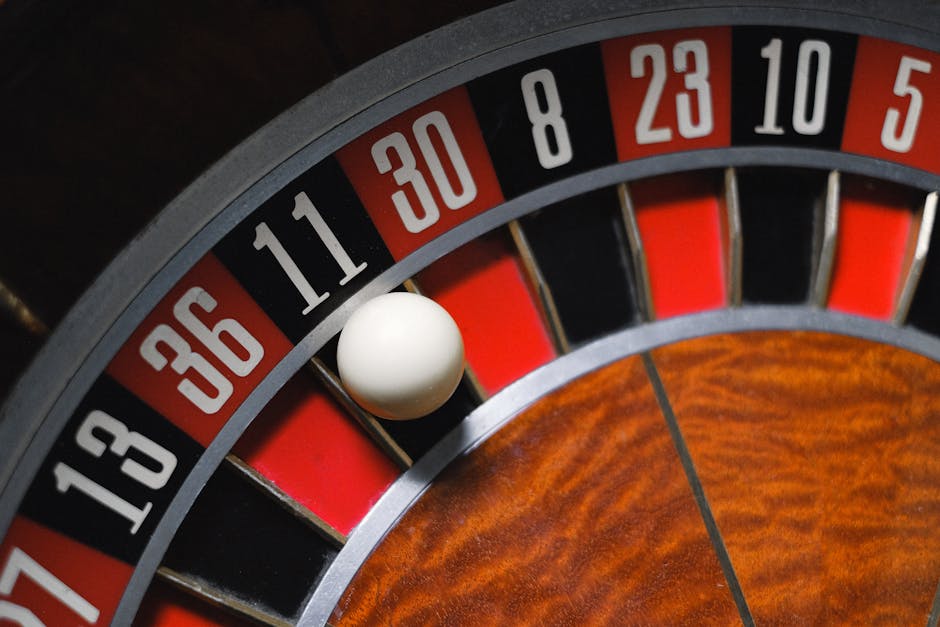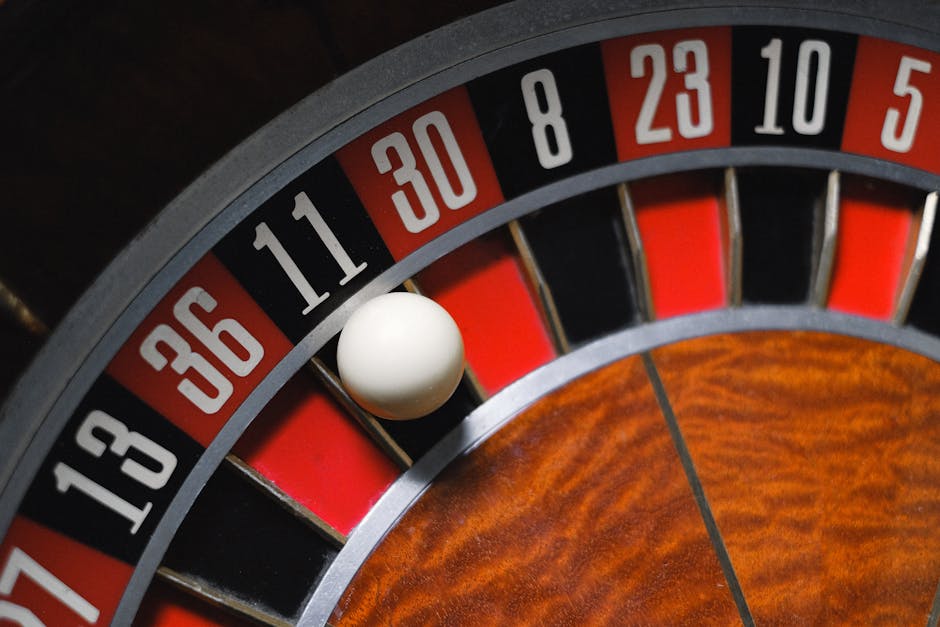Why a Strategy Matters in Jackpot Gaming
People love to believe jackpots are all about luck. Spin the reels, cross your fingers, hope the stars align. But here’s the hard truth: pure luck doesn’t stand up over time. If you’re just winging it every session, you’re not chasing a strategy—you’re chasing chaos.
Smart play is less about being a math genius and more about staying aware. A balanced plan isn’t rigid accounting; it’s knowing your budget, understanding the game mechanics, and setting clear limits.
A solid approach means knowing what you’re walking into each time you load up a jackpot game. It’s planning stake sizes in advance, timing play sessions, and actually reading those bonus terms most players skip.
The players who burn out or blow their bankroll early usually fall into one of three traps:
- Treating every spin like it’s owed to pay out.
- Chasing losses with bigger, riskier bets.
- Playing too long, too often, without breaks.
Building a plan—even a loose one—doesn’t guarantee a jackpot. But it gives you a fighting chance to enjoy the ride without losing your shirt.
Step 1: Know the Game You’re Playing
Not all jackpots are built the same. Before spinning anything, it helps to know what kind of game you’re dealing with.
Progressive jackpots grow over time. A slice of every player’s bet feeds the prize until someone hits it. The pot can get massive, but so does the competition. Odds of winning? Slim. But the upside is real.
Fixed jackpots don’t budge. What you see is what you’ll win. Smaller payouts, better odds. These are great for players who want reliable stakes and avoid wild swings.
Network jackpots are shared across multiple casinos or platforms. They’re basically progressive jackpots on steroids. Bigger prize pools, even longer odds.
Now let’s talk RTP and volatility. RTP—Return to Player—is the average a game is programmed to pay back over a long period, usually shown as a percentage. A slot with 96% RTP pays out $96 for every $100 wagered…in theory. Results vary wildly in the short term.
Volatility tells you how fast and hard a game swings. High-volatility games pay big, but not often. Low-volatility games keep you going with frequent, smaller wins. One suits thrill-seekers. The other’s more chill.
Match the game to your risk tolerance. If you’re chasing that one-in-a-million payday, go progressive with high volatility. Want a longer session on a smaller budget? Stick to fixed jackpots and consistent RTP. There’s no right answer—only what works for you.
Step 2: Set a Budget—and Stick to It
Jackpot games can spike adrenaline, but without bankroll discipline, that buzz turns into burnout—fast. It’s not just about how much you’re playing with; it’s about knowing when to walk away. Discipline isn’t glamorous, but it’s the difference between playing the long game and blowing your funds in one bad streak.
Start by setting a realistic gambling budget—money you can lose without denting your rent, bills, or mindset. Break it down per session. That could mean $50 a week or $10 every other day. The key is consistency and knowing your edge.
Stake sizes matter. Betting max on every spin might feel thrilling, but it empties your wallet quicker than you think. A balanced plan means sizing your bets to match your budget and the volatility of your chosen game. High risk doesn’t mean mindless risk.
And here’s the trap to avoid: chasing losses. One loss leads to bigger, riskier bets trying to “get it back.” That’s where emotions take over and strategy flies out the window. Once your session budget’s gone, shut it down—even if you’re tempted to reload. This is how you stay in control.
Set limits. Stick to them. Stay sharp. Emotional play is expensive. Smart play keeps you in the game.
Step 3: Timing and Frequency
Let’s get one thing straight: marathon jackpot sessions don’t make you a better player—they just make you tired. Cognitive fatigue hits hard when you’re staring at spinning reels for too long. Most seasoned players shoot for sessions between 20 to 45 minutes. Long enough to enjoy the ride, short enough to stay sharp. If you find yourself zoning out or clicking on autopilot, it’s past time to stop.
As for frequency, the golden rule is consistency without overload. Daily play can work—if your budget and time allow it. But weekly, focused sessions often yield better energy, better decisions, and less emotional swing. Playing sporadically? That’s fine too, just make sure it’s intentional, not impulsive.
Now, about “timing” a jackpot—don’t fall for it. There’s no algorithm waiting for the clock to hit a lucky hour before paying out. Jackpots are triggered by math and randomness, not magic moments. Worry less about timing the game, and more about timing yourself: play when you’re clear-headed, calm, and within the limits you set.
Step 4: Making the Most of Bonuses
Unlocking value from bonuses can make a big difference in your jackpot journey—if you know what to look for. Not all bonus features are created equal, and understanding their real worth can give you a subtle edge without falling into the trap of chasing gimmicks.
Identify Bonus Features That Matter
Keep an eye out for bonuses that actually enhance your gameplay, not just your excitement:
- Free Spins: Look for games that offer a decent number of spins with a clearly stated multiplier. These spins should ideally tie into the jackpot features.
- Multipliers: These can significantly boost the value of your wins—if they’re not tied to unrealistic odds.
- Progressive Features: Some games use bonuses as a mechanism to unlock progress toward a bigger jackpot. If it feels like you’re just spinning for flash without substance, skip it.
- Loyalty Programs: Look beyond basic point accumulation. Are there actual perks or cashback tied to your level? Many players miss out by ignoring these quieter value-adds.
Don’t Skip the Math
Bonuses can be fun, but they need to justify your time and stake:
- Calculate how often the feature realistically triggers.
- Estimate the average payout versus your bet size.
- Avoid offers with a high minimum stake requirement that doesn’t match your budget.
A flashy bonus with terrible odds is still a bad deal. A mildly exciting one with solid returns? That’s worth a closer look.
Skip the Snooze—Read the Terms
Bonus terms aren’t exactly thrilling reads—but they make or break your experience. Don’t blindly accept every offer without knowing:
- Wagering Requirements: How many times must you wager your bonus before you can cash anything out?
- Game Restrictions: Are your favorite jackpot games excluded from bonus play?
- Max Bet Limits: Exceeding these, even accidentally, can void your bonus.
Pro tip: skim for numbers first. If the wagering requirement is sky-high or the eligible games list doesn’t suit you, don’t waste your time.
When used wisely, bonuses are a smart way to stretch your budget and enhance gameplay. Just make sure you’re in control—not the flashy graphics or exciting buzzwords.
Step 5: Track Progress and Adjust
If you’re not logging your sessions, you’re basically guessing. A simple notepad or spreadsheet can do the job. Record the basics: what game you played, how long you played, what you bet, and what your net win or loss was. Add notes on mood or mindset, especially if a session felt off or unusually lucky.
Over time, this builds real intel. You’ll start spotting patterns—maybe you overbet after small wins, or play longer when you’re tired. This isn’t about superstition; it’s about self-awareness. And yes, the difference matters.
Logs also clue you in on when it’s time to adapt. Maybe you’re consistently down on a certain game. Time to shift. Or maybe you’ve been grinding at low stakes but you’re hitting enough consistency to cautiously level up. On the flip side, if your log shows mounting losses or reckless sessions, that’s your signal to pause and reassess.
Bottom line: track yourself like a pro. It takes five minutes. It pays off far longer.
Common Pitfalls to Dodge
Jackpot fever hits hard. It’s that rush you get after a close win, or the high of thinking you’re only a few spins away from a life-changing payout. But it’s also where players lose the plot. Pressure builds. Overconfidence sets in. Before you know it, you’re upping stakes, playing longer, and ignoring the plan.
One major trap is treating entertainment like an investment. Jackpot games are built for thrill, not ROI. Expecting them to pay like a dividend-generating stock sets the stage for disappointment—and reckless behavior. If the fun gets replaced by financial stress, it’s time to pull back.
Then there’s the allure of secret strategies. Some players swear by timing systems, pattern tracking, or unproven hacks. Problem is, jackpot games are designed to be random. Over-relying on systems creates false confidence and doubles down on losses. The smart play? Stay grounded. Use logic over myth. And remember that no method beats knowing when to quit.
Want to Go Deeper?
If you’re serious about leveling up your jackpot game, don’t stop here. The basics cover a lot, but there’s always more to unpack—especially if you want to avoid rookie mistakes and keep your gameplay sharp. The Comprehensive Guide to Playing Jackpot Games digs deeper into strategy, psychology, and the mechanics behind your favorite titles. It’s not fluff. It’s practical advice built for real-world play. Worth a read before your next spin.
Final Thoughts: Luck Loves a Clear Head
Jackpot gaming doesn’t have to be a reckless pursuit of luck. With a clear head and a well-balanced plan, you can enjoy the excitement without losing control. Here’s how to keep fun at the forefront—and risk in check.
Play Smart, Not Desperate
Desperation clouds judgment—and in jackpot gaming, impulsive decisions often come with a price. Smart play means:
- Knowing when to walk away, win or lose
- Making choices based on strategy, not emotion
- Avoiding the trap of trying to win it all back in one session
Make It Enjoyable—and Sustainable
Yes, the thrill of hitting a jackpot is real. But the fun fades fast when gaming turns into stress. To keep the experience enjoyable:
- Treat gameplay as entertainment, not income
- Take regular breaks to refresh your mindset
- Celebrate personal limits as much as wins
Balance = Control
A balanced gaming plan doesn’t promise guaranteed wins—it delivers consistent control.
- Budgeting protects your bankroll over the long term
- Tracking habits helps you make informed adjustments
- Knowing your limits keeps jackpot chasing from becoming a problem
Staying in control isn’t about playing less—it’s about playing smarter. Win or lose, the real victory is walking away feeling confident, not drained.




